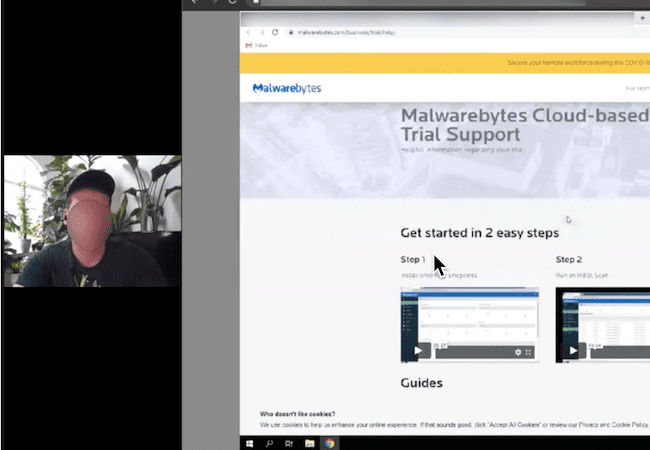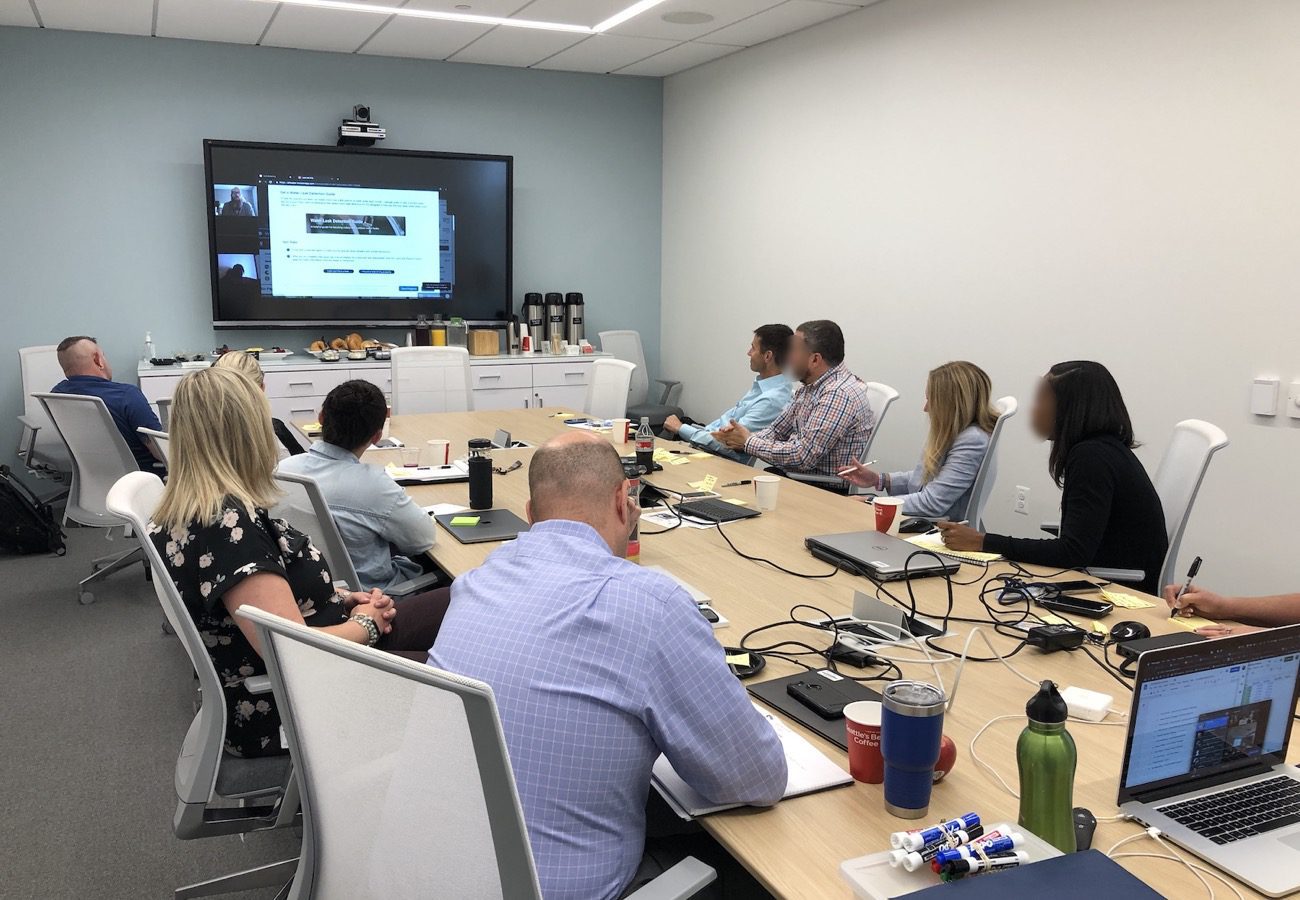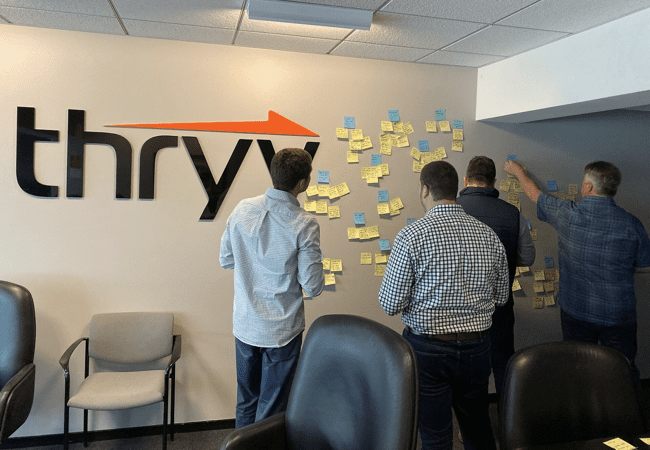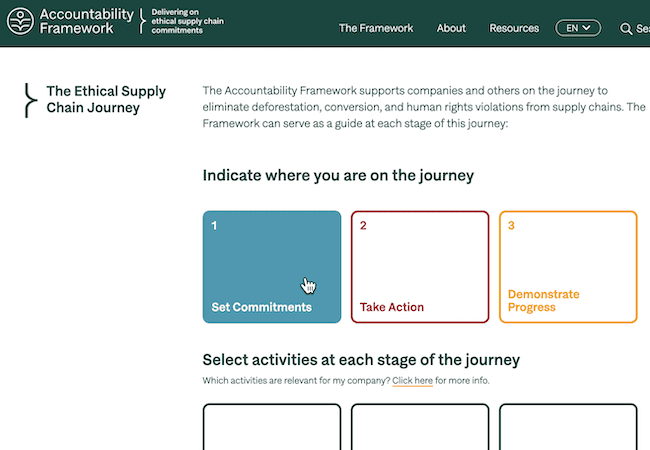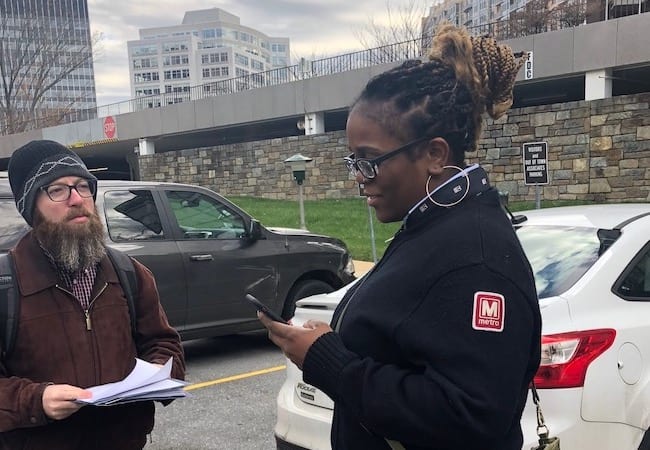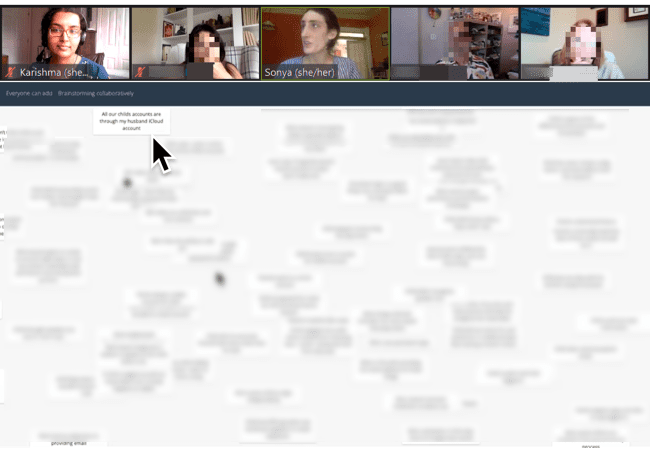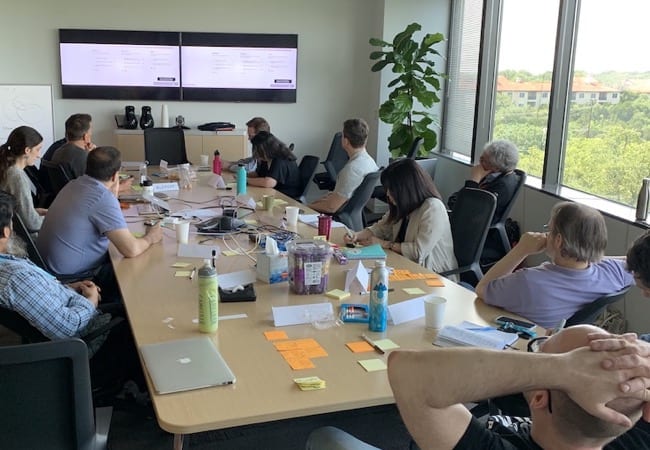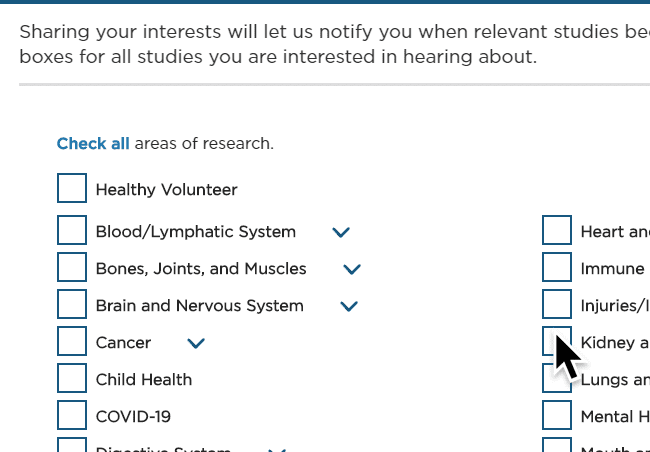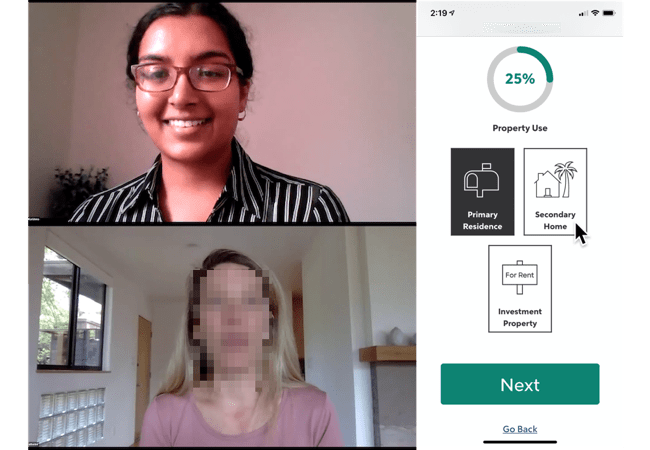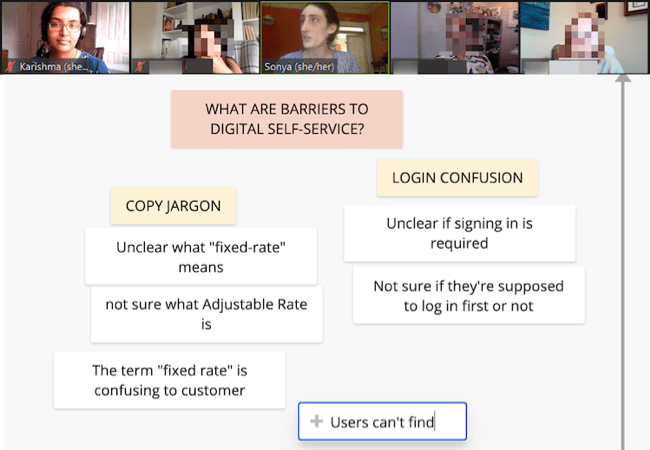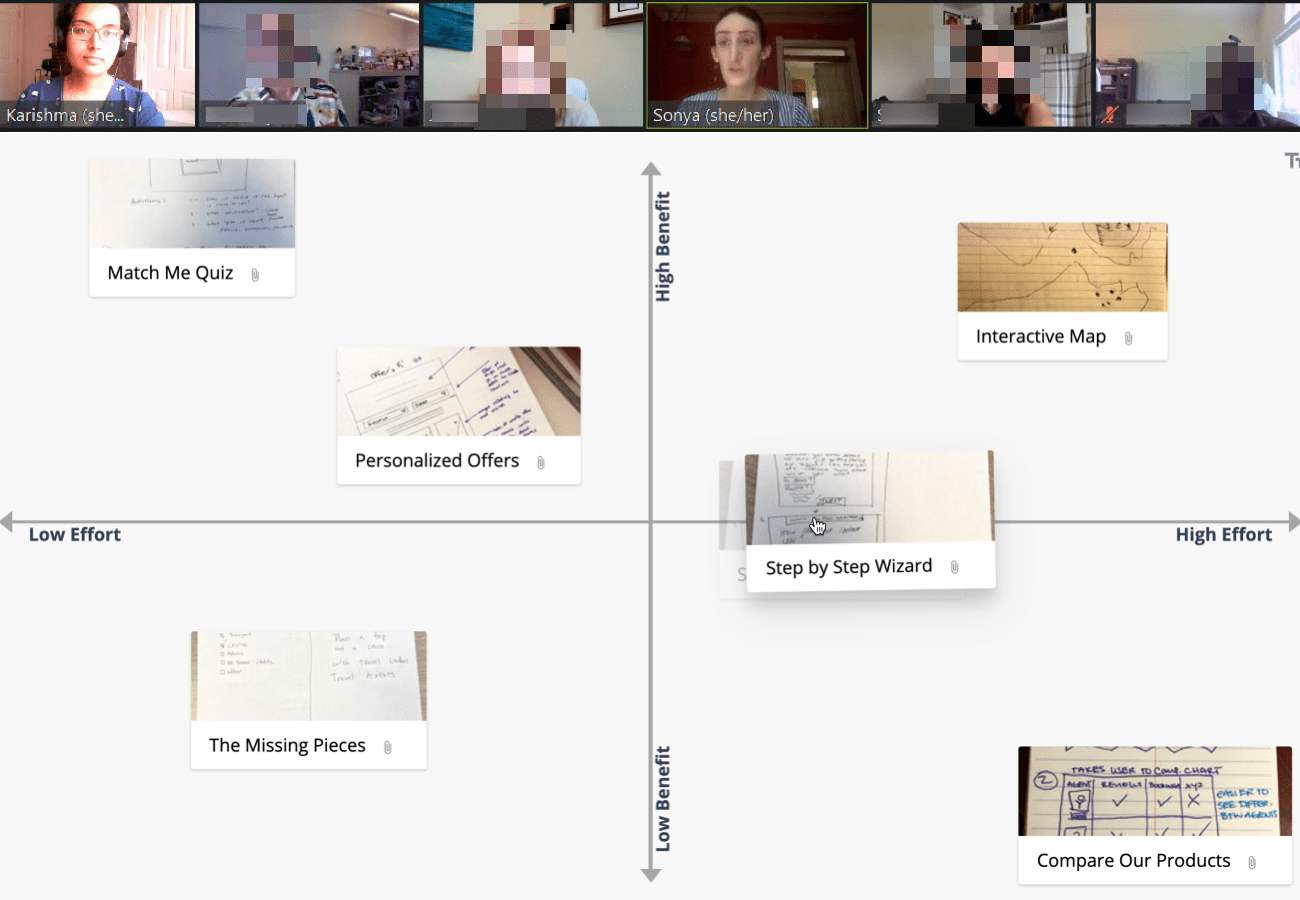Usability Testing Services
Our small agency builds and runs ongoing usability testing programs and labs for enterprise and mid-size companies. We also conduct a limited number of standalone usability research studies. Our focus is moderated qualitative testing of digital products — from live consumer apps to enterprise software prototypes.
Recurring Usability Testing Programs
Ongoing UX research programs or labs make up our core service. We design, build, implement, and manage programs for enterprise and mid-size companies.
Within our programs, moderated usability testing is the method that we use most often. Our custom remote programs allow teams to test a wide range of products and features.
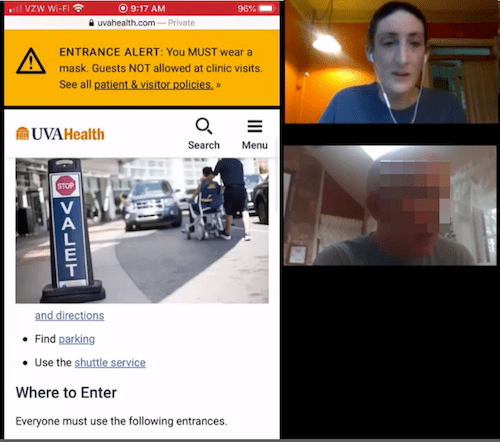
Featured Case Study:
How a Monthly UX Testing Lab Drove a User-Centered Culture
Challenge
A Fortune 500 company was eager to scale usability testing and human-centered design across the enterprise.
Approach
We designed, launched, and managed a recurring research program, “Live Testing Tuesday.”
Result
After successfully scaling the program, we developed a playbook to hand off program management to our client.
One-Time Usability Testing Studies
Outside of our recurring programs, we also lead a small number of standalone user testing studies. These are typically complex studies that include multiple rounds of testing and/or supplemental research such as a quantitative survey.
Over the past 13 years, we have led hundreds of usability testing studies across all major industries.
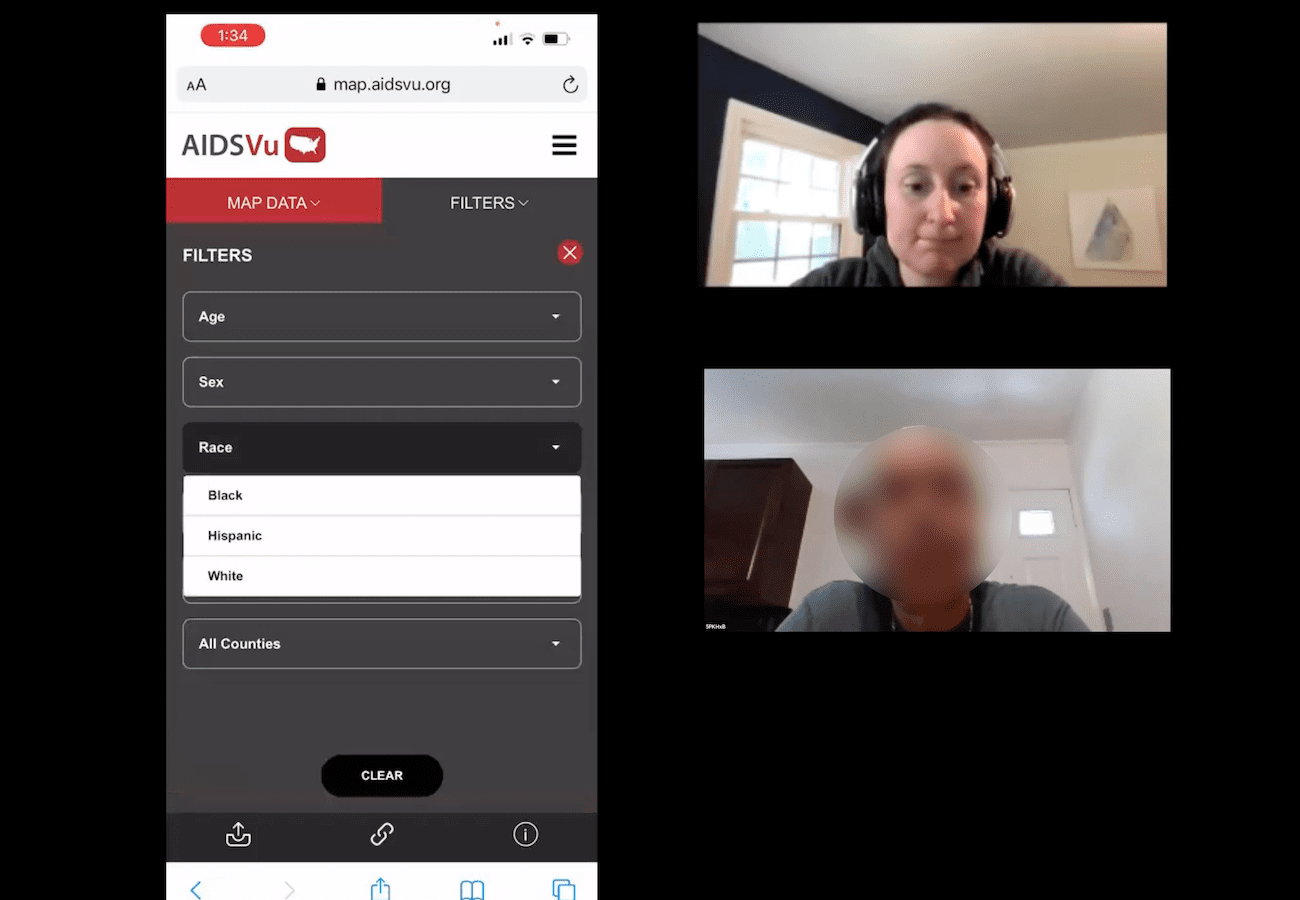


Case Study:
How UX Testing Helped BankFinancial Catch Problems Before Launch
Challenge
The marketing team at NASDAQ-traded BankFinancial was ready to launch a new version of its public-facing website and wanted to ensure a smooth launch for existing and prospective customers.
Approach
BankFinancial partnered with Marketade to lead a 5-week website usability testing project. The cornerstone of the project was a UX research and ideation workshop at the bank’s offices outside Chicago.
Result
The 1-day workshop enabled a diverse stakeholder team to quickly reach alignment on critical UX problems and potential solutions — while learning new design thinking and collaboration tools.
“I thought the interview set-up, organization, and deliverables were all fantastic!”
More Usability Testing Examples
Here are other examples and case studies of recent UX testing projects and programs that we’ve led for product, UX, and marketing teams.
McDonald’s — Mobile App Prototype Testing
We led mobile app usability testing studies for McDonald’s in 2021, 2022, and 2023. In a recent study, we tested a redesign of their mobile ordering flow with about 40 users over 2 rounds. Learn more: Prototype UX Testing of a New Mobile Ordering Flow.
Malwarebytes — UX Testing of B2B Software
Usability testing with IT pros who manage security software at midsize organizations. 10 moderated interviews followed by a half-day analysis workshop. Learn more: Usability Testing with IT Security Managers for Malwarebytes.
American Water — Utility Portal UX Testing
Prototype UX testing and a 1-day workshop to improve the experience of customers investigating a high bill or a water leak. Learn more: Prototype Usability Testing of Billing & Leak Scenarios for American Water.
Thryv — Testing Small Business Software
Small-scale usability study for this NASDAQ-traded software company whose products include the Yellow Pages. Tested their flagship B2B software with 6 small business customers. Facilitated an analysis and ideation workshop. Learn more: Software Usability Testing with Small Business Customers for Thryv.
Accountability Framework — User Testing
User experience testing of a nonprofit digital platform that helps global companies like Nestlé and McDonald’s achieve ethical supply chains — followed by a 1-day analysis workshop. Learn more: Usability Testing of a Platform Supporting Ethical Supply Chains.
GEICO — Iterative Usability Testing
Over 100 usability testing projects to support GEICO’s digital experience division. Work spanning a wide range of customer-facing products and internal systems — many with 1-day analysis workshops. Learn more: A Year in the Life of an Enterprise User Research Program.
PBS — Prototype Testing with Kids & Parents
Wireframe UX testing with 12 pairs of parents and young children. Part of a mixed-methods study to inform the design of a new user experience flow. Facilitated a remote workshop with project stakeholders to analyze and act on user research. Learn more: Prototype UX Testing with Kids & Parents for PBS.
Thales — Concept Testing of Enterprise Software
8 concept and UX testing studies for this $18 billion multinational selling to enterprise markets. Recruited and interviewed buyers and users of enterprise security software. Designed and led workshops to observe and analyze the research as a team. Learn more: Helping Thales Test Enterprise Security Concepts with B2B Decision-Makers.
NIH — Qual & Quant UX Testing
Usability testing for a large NIH study on building trust to increase Black and Latinx participation in medical trials. Moderated 4 rounds of qualitative user testing on prototypes, with iterative design improvements throughout. Plus large-scale quantitative UX testing. Learn more: Increasing Minority Participation in Health Studies: A UX Research Study for NIH.
“Great insights based on convincing user data. Loved the process and outcomes, despite the brutality of hearing some of the feedback.”
An Optional Step: Analysis Workshops
If your team or organization struggles with alignment, our “team sport” option may be the right for you. With this approach, you will watch users directly and reach team consensus on research findings — all in a 1/2-day remote workshop.
1. Observe UX Testing
The morning: Watch full usability research sessions with your team. Capture findings like a user researcher.
2. Align on Problems
Early afternoon: Go through a series of collaborative steps to analyze findings and reach consensus on your top UX problems.
3. Generate Solutions
Late afternoon: Break into small groups to brainstorm, sketch, combine and critique ideas. Rank the most promising solutions.
“The most productive workshop I’ve ever attended. The facilitators, participation and action plan made this an extremely effective day.”

